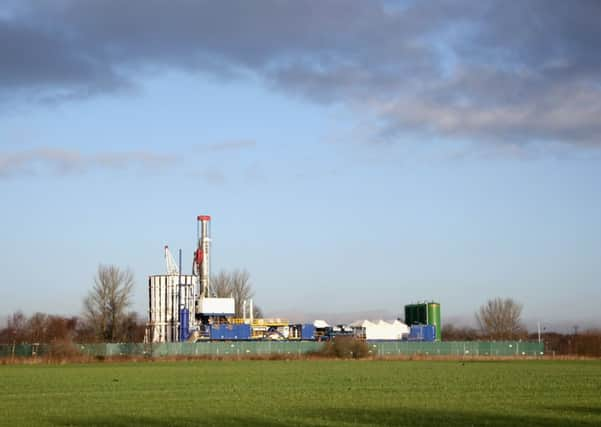Fracking fears must be addressed


SCOTTISH energy minister Fergus Ewing’s decision to place a moratorium on the granting of new licences permitting shale oil and gas exploration is, from one perspective, an opportunity for all interested parties to voice their support or raise concerns on the future of fracking in Scotland.
At first glance this announcement had the potential to cause serious consternation from those who believe fracking will be an important part of the energy mix which keeps the lights on in the UK – an approach which looks to responsibly maximise output from traditional oil and gas, renewables, nuclear and coal bed methane extraction.
Advertisement
Hide AdAdvertisement
Hide AdHowever, in the cold light of day, the results of the frenetic manoeuvring which took place at Westminster and then Holyrood on the respective fracking votes, are not all bad. A moratorium in lieu of a public consultation could be the catalyst for setting out what is acceptable to individuals, communities, industry and investors, and which will allow our fledgling fracking industry to progress.
Scotland has benefited from 40-plus years of experience gathered in the unforgiving North Sea environment which can be put to best use in establishing a fracking regime which is safe, as environmentally friendly as possible, provides a healthy tax stream for the revenue to the benefit of all the UK, and gives us security over our energy supply at a time when global conflict, regional disputes and fluctuating energy prices have become more common than is acceptable.
Mr Ewing acknowledged there is an international dimension to unconventional oil and gas and that the Scottish Government will research and take heed of the fracking experiences of other countries. He repeated his approach would be cautious and an exercise in careful evidence-gathering, and as lawyer I am pleased that the final decision on whether Scotland opts for shale oil and gas will be based on hard evidence and not ruled by the heart. It is imperative that Scottish Government policy is fact-based and in the national interest rather than “politically motivated”.
It is also critical that Mr Ewing returns to Holyrood as quickly as possible to lay down a definitive time line for completion of this consultation. Without an end date, there is a real danger of this very important issue drifting and that is bad for potential investors who have the resources which will be required to develop unconventional extraction. Investors demand stability and certainty, and most will have global portfolios which feature other countries and industries competing for capital. Another concern will be potential fragmentation of the UK in terms of fiscal and regulatory regimes, which makes investment in Scotland (and England) less attractive. Government must look at this from a global investment perspective and avoid giving investors reasons to favour investment elsewhere.
As the minister stated, we should never close our minds to new technologies, and let’s not forget it is technology which has been developed over the last 40 years that continues to make a multi-billion pound contribution to our balance of payments. As a result of North Sea success, we have a world class supply chain and a highly skilled workforce which could easily adapt to the requirements of an emerging shale industry, in turn safeguarding jobs and raising revenue.
Next week The Scotsman Conferences, in association with Pinsent Masons, hosts an event on the future of shale oil and gas, bringing together leading academics, government experts and industry leaders, who will share experiences, ideas, and opinions on how unconventional oil and gas could be developed in the UK.
No doubt some will have strong views on the merits of this moratorium and will contrast this with the different position adopted south of the border. One topic which is sure to feature is the ongoing depression of crude oil prices and how shale oil and gas will fare when there is a perceived over-supply. My view is that it would be folly if we were lulled in to a false sense of security because the difference between levels of supply and demand remains tight and it is well documented that the UK is dangerously short of electricity and there is a genuine possibility of power black-outs.
The UK energy industry has learned hard lessons from tragic circumstances and is now one of the safest regimes in the world. Strong regulation ensures there is no drop in safety or environmental standards and I am confident the same stringent regulation of unconventional extraction will allay a great number of the concerns of those still to be won over. The newly established Oil and Gas Authority has many challenges ahead but, properly resourced, the OGA can establish its credentials as a tough but pragmatic regulator, and working with operators and contractors ensure our shale sector establishes a global benchmark for HSE and environmental standards.
Advertisement
Hide AdAdvertisement
Hide Ad• Bob Ruddiman is head of energy and natural resources at Pinsent Masons
• ‘Is Scotland ready for fracking?’ will be held at The Scottish National Gallery, Edinburgh, on Tuesday 10 February. For more information and to register as a delegate visit www.scotsmanconferences.com